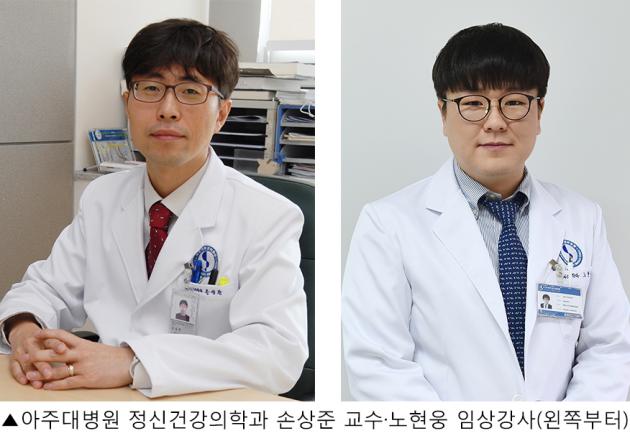A research team at Ajou University Medical Center said it has discovered that a “multidomain treatment,” which combines drug treatments with nondrug therapies, can reduce late-life depression.

To prove the efficacy of the multidomain treatment, the team, led by Professors Son Sang-joon and Roh Hyun-woong at the hospital, divided 80 people with an average age of 70 diagnosed with depression and on medication into two groups.
One group received psychosocial interventions alongside their medication for 12 weeks, while the other group received an existing case management program through their community.
The psychosocial intervention included easy tasks such as exercising more than three times a week, eating a Mediterranean meal, meeting acquaintances more than once a week and learning how to manage emotions.
The research team helped patients practice psychosocial intervention by steadily strengthening their motives by handing out gold, silver, or bronze medals as a stepwise reward for participation, adherence, or achievement, encouraging patients not to give up in the middle of the treatment.
As a result, the team confirmed that the group that received the additional psychosocial intervention reduced depression symptoms by more than 30 percent. “Such a recovery rate was twice higher than the other group that only received case management program,” the team said.
The team also confirmed that even brain-related depression changed in the group that received the psychosocial intervention, through a brain functional magnetic resonance imaging (fMRI) test performed before and after the treatment. The fMRI image confirmed that brain connectivity, which is known to be overactive when depression is severe, normalized after the patient received the treatment program.
“This study proved, through fMRI and cognitive tests, that elderly depression can be improved through non-drug treatment that anyone can easily do in daily life with medication,” Professor Roh said. “Considering that the life expectancy for retirees is increasing, this study is expected to be an important guide for a healthy and happy life.”
Professor Son also stressed the effectiveness of mixed therapy.
“When we recommended psychosocial intervention to seniors, most patients quit after two to three weeks,” Son said. “However, through the incentive program, we could give them a sense of achievement and help them share their success with their families.”
The team published its study on the Journal of Affective Disorders in February, under the title, “A 12-week multi-domain intervention for late-life depression: a community-based randomized controlled trial.”

